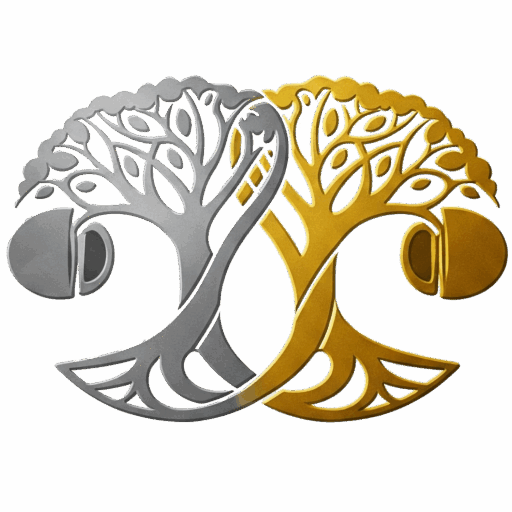
The Homecoming of Beorhtnoth
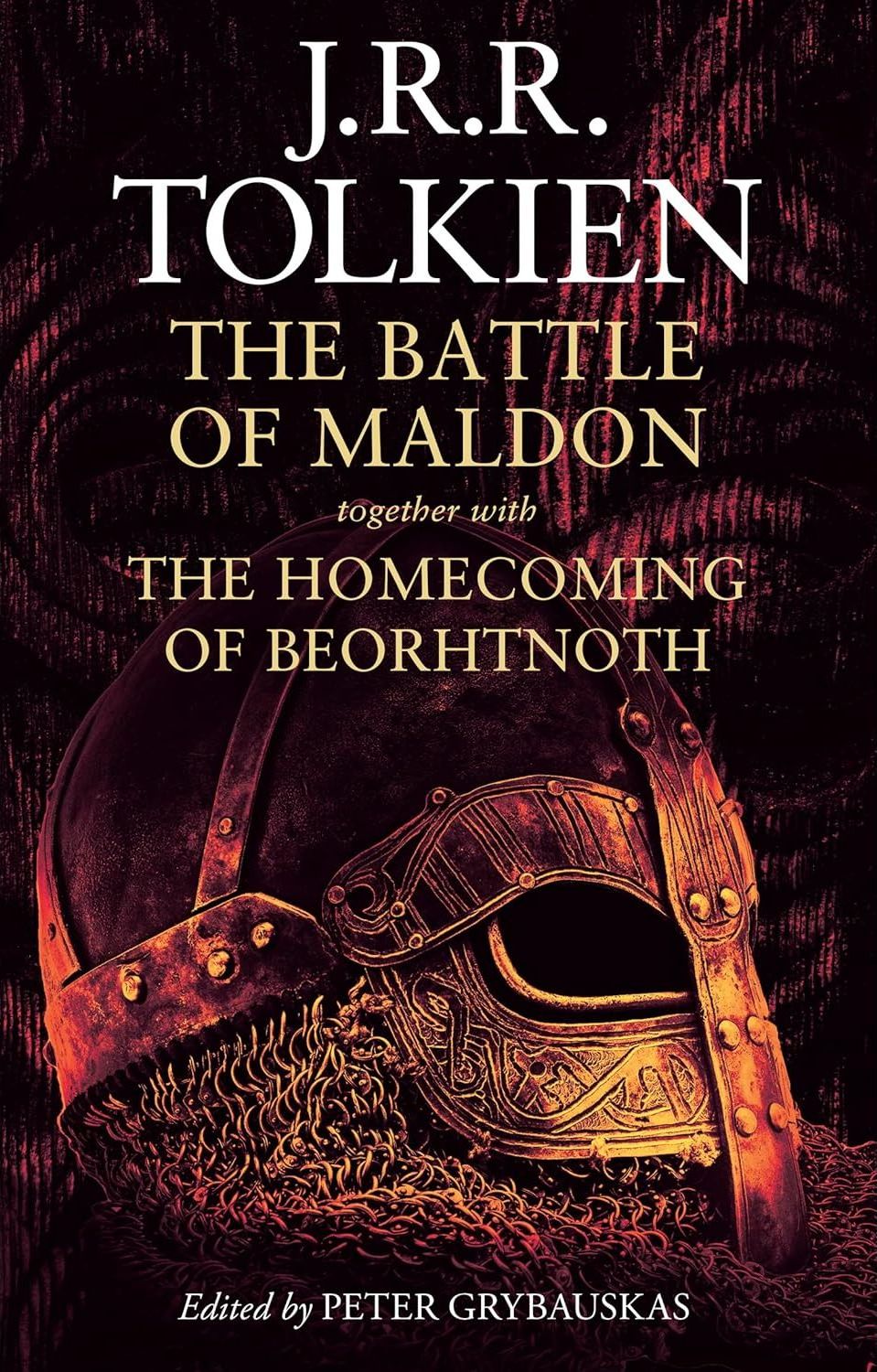 The Homecoming of Beorhtnoth Beorhthelm’s Son is a unique alliterative verse-drama by J.R.R. Tolkien, published in 1953. It serves as a creative and critical sequel to the fragmentary Old English poem, The Battle of Maldon (c. 991 A.D.).
The Homecoming of Beorhtnoth Beorhthelm’s Son is a unique alliterative verse-drama by J.R.R. Tolkien, published in 1953. It serves as a creative and critical sequel to the fragmentary Old English poem, The Battle of Maldon (c. 991 A.D.).
The short play is a dialogue between two Anglo-Saxon servants, Tidwald (Tída) and Torhthelm (Totta), who have been sent onto the gruesome, corpse-strewn battlefield at night to retrieve the body of their fallen lord, Ealdorman Beorhtnoth.
The central focus is not on the battle itself, but on the characters’ contrasting views of Beorhtnoth’s fatal error: his ofermōd (Old English for “overmastering pride” or “hubris”) in allowing the Viking raiders to cross an easily defended causeway for the sake of a “fair fight.” Totta, the younger, more imaginative character, romanticizes the heroic code and sees Beorhtnoth’s sacrifice as tragically noble. Tída, the older, pragmatic realist, offers a biting critique of the lord’s folly, pointing out the needless waste of life and duty caused by his pride.
Tolkien uses the dramatic exchange, written in the style of Old English poetry, to explore and deconstruct the “Northern heroic ethos,” arguing that true Christian courage must be separated from a selfish thirst for personal glory. The work is often published with Tolkien’s scholarly essay “Ofermod,” which further clarifies his interpretation of the word and the heroic ideal.
 BBC Drama
BBC Drama
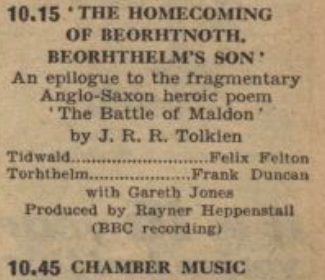 BBC Radio produced dramatization
BBC Radio produced dramatization
 JRR & Christopher Tolkien
JRR & Christopher Tolkien
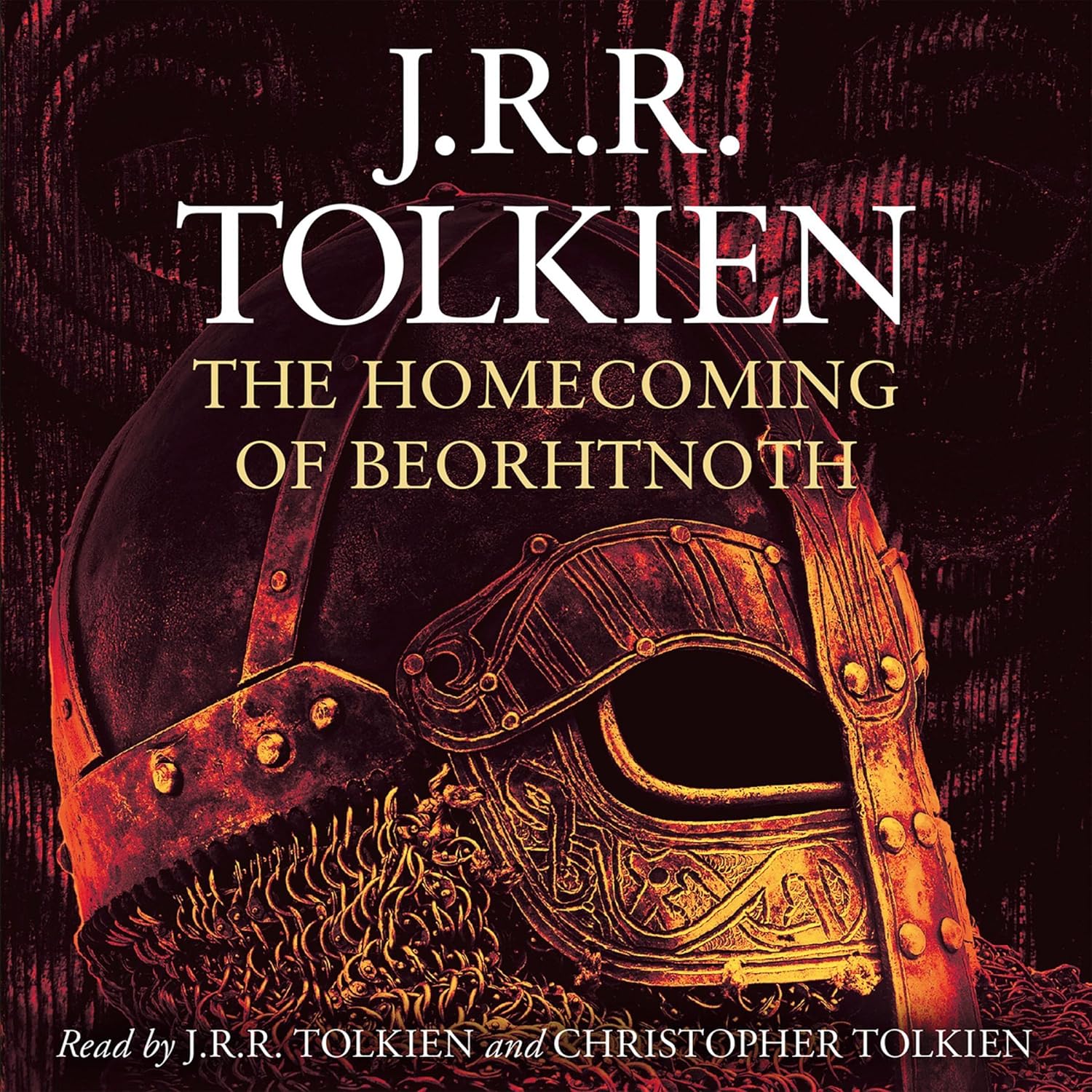 Released for the Centenary
Released for the Centenary
 Gert Heidenreich, Timmo Niesner, Johannes Steck
Gert Heidenreich, Timmo Niesner, Johannes Steck
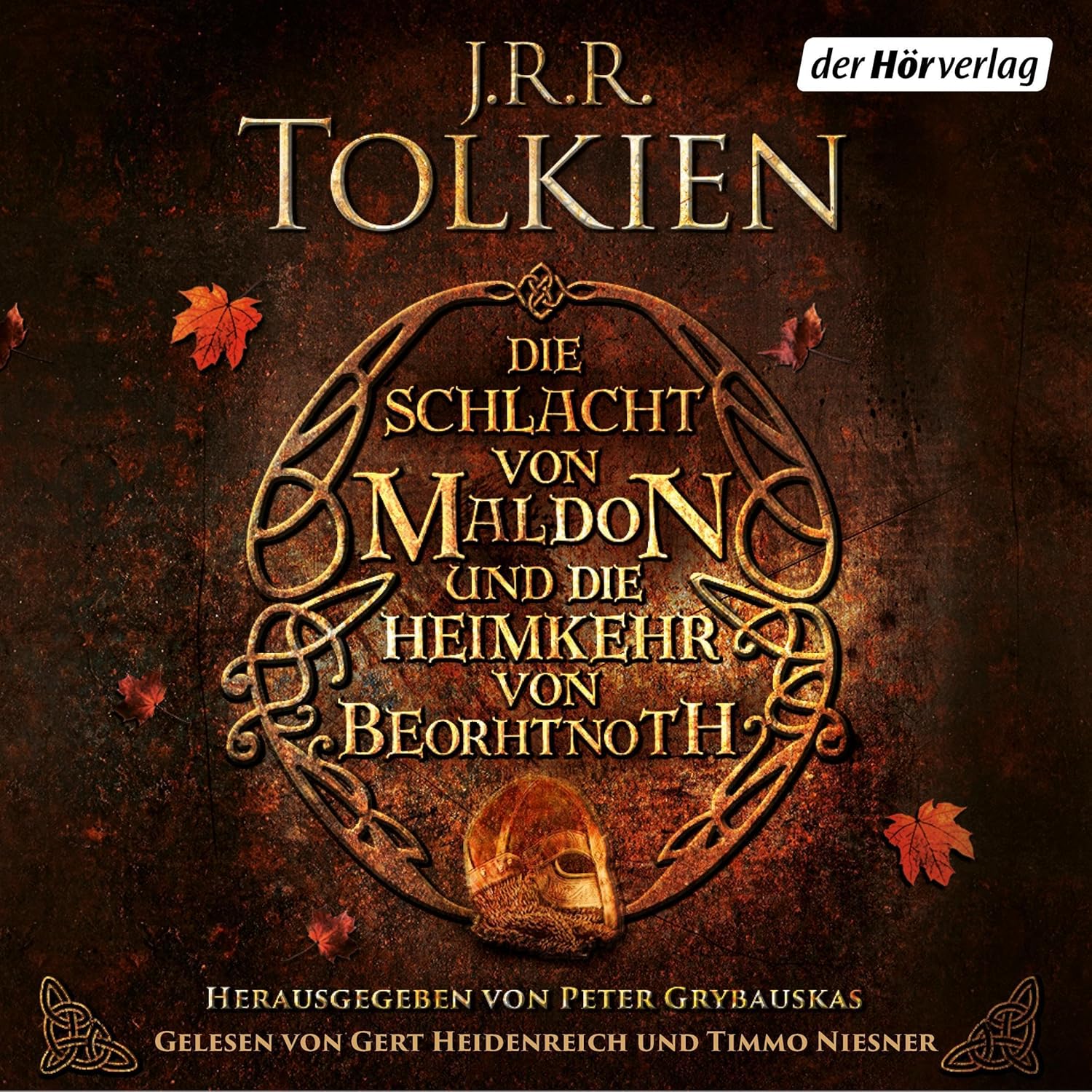 Die Schlacht von Maldon und Die Heimkehr von Beorhtnoth
Die Schlacht von Maldon und Die Heimkehr von Beorhtnoth
Der Hörverlag produced unabridged German compendium
